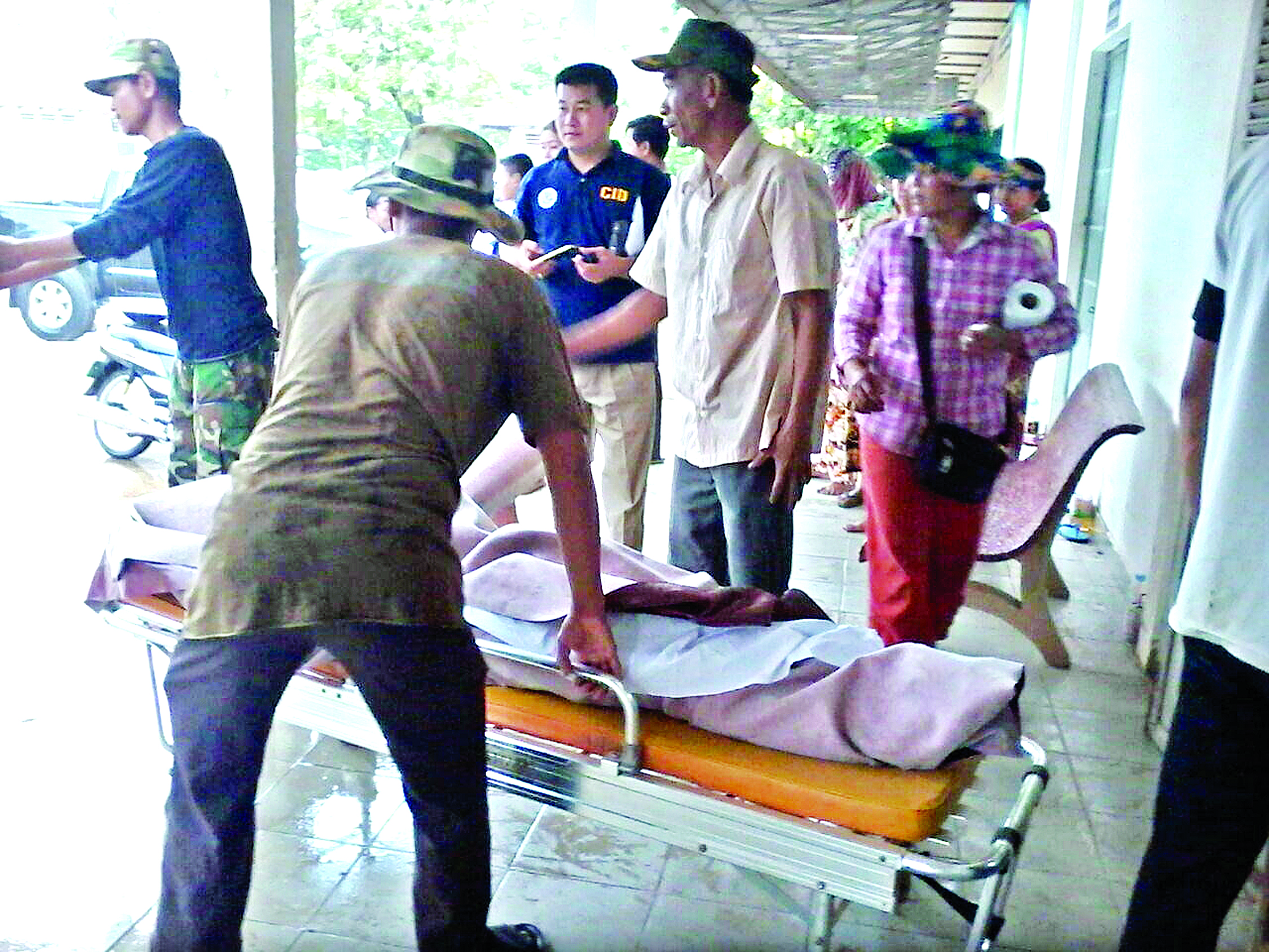
An Australian man injured in a bomb blast at a Cambodian military firing range speaks on the phone at the hospital. Two men – another Australian and a Cambodian solder – died in the explosion. Facebook
The version of events presented by Cambodian authorities to explain the deaths of two men killed in an explosion at a military base on Thursday began to unravel over the weekend, as officials walked back claims that the incident was part of a military exercise and that the Australian victim was a weapons expert.
Australian authorities confirmed on Friday that two Australian nationals injured in the bomb blast – one of them fatally – were neither military trainers nor bomb experts, as claimed by multiple Cambodian authorities on Thursday.
In addition, the Kampong Speu military base where the explosion took place appears to have been used illegally as a shooting range for tourists.
Two men – an Australian man and a Cambodian soldier, 52-year-old Koy Mok – died in the explosion on Thursday. Two other Cambodian soldiers, Sok Sarith, 48, and Long Vuthy, 50, and another Australian man received minor injuries in the blast.
In a statement posted to Facebook on Friday, Defence Military spokesman Chum Socheat admitted the explosion “was not part of work activities or assigned by the unit”.
According to Socheat, a Phnom Penh resident named Hun Piseth and a colonel named Sath Lath “knew” the Australian tourists, and the group “invited each other” to go to the base.

Two Australians involved in a fatal bomb blast at a Cambodian military firing range were tourists, not bomb experts as initially claimed by Cambodian authorities. Photo supplied
Socheat, who could not be reached yesterday, did not further identify Piseth and Lath.
In fact, the two operate a popular shooting range for tourists near the Choeung Ek killing fields called Cambodia Extreme Outdoor Shooting Range.
In descriptions online, the company claims to run two more shooting ranges, including one in Kampong Speu. Photos posted on Facebook at the Kampong Speu location in January show tourists firing machine guns and rocket-propelled grenades with the assistance of numerous men in military uniforms.
The wooden shack in videos on the page appears to be the same as one surrounded by crime scene tape in photos released by police after the deadly incident on Thursday.
When reached Sunday, Piseth denied knowledge of the incident and said he was not there. “Everything is run by my boss,” he said. “I am just the driver.”
Piseth added that he was not at liberty to give out the phone number of Lath, whom he identified as his employer.
Lanh Kao, head of the armoured vehicle headquarters where the fatal explosion took place, could not be reached yesterday.
Shooting ranges on military grounds are not uncommon in Cambodia, even though they were outlawed more than a decade ago. Tourists pay hundreds of dollars to shoot machine guns, throw grenades and fire bazookas at targets with little safety gear or training.
When reached on Friday, Kampong Speu Governor Vy Samnang backpedalled on his claims that the Australians were bomb experts, but denied the pair paid to shoot weapons at the site.
“No, no, everything is state-owned, we do not charge anyone,” he said. “They might be friends of the Cambodian soldiers and they might invite them in. These Australian guys claimed to the soldiers that they are bomb experts.”
Samnang added that Prime Minister Hun Sen had offered his condolences to Australian Prime Minister Malcolm Turnbull in Sydney on Friday morning, where both were attending the Asean-Australia Special Summit.
He said two representatives from the Australian Embassy had visited the site and taken the Australian’s body.
The Australian Department of Foreign Affairs and Trade confirmed it was providing consular assistance to the family of the dead tourist, but declined to say more due to privacy reasons.
The Cambodian police have reported the Australians’ names as Aaeou Sweeibu and Bra Dvey – names which suggest an error in transliteration.
O Vann Then, the director of Kampong Speu Provincial Hospital, said the two victims appeared to have been facing each other when the grenade exploded.
“The front people suffered all the explosion of the grenade,” he said. “Their chest parts were hit and broken and sprayed . . . Even though we tried our best, we could not rescue them.”
Interior Ministry spokesman Khieu Sopheak could not be reached yesterday. However, in 2006, Sopheak said that private shooting operations were illegal and that the shooting range near Choeung Ek was meant “only for police and military police”.
“The ministry never receives money from tourists that are going there,” he said. “So, if they’re doing that, the officials at that place are committing a crime.”
Additional reporting by Mech Dara











